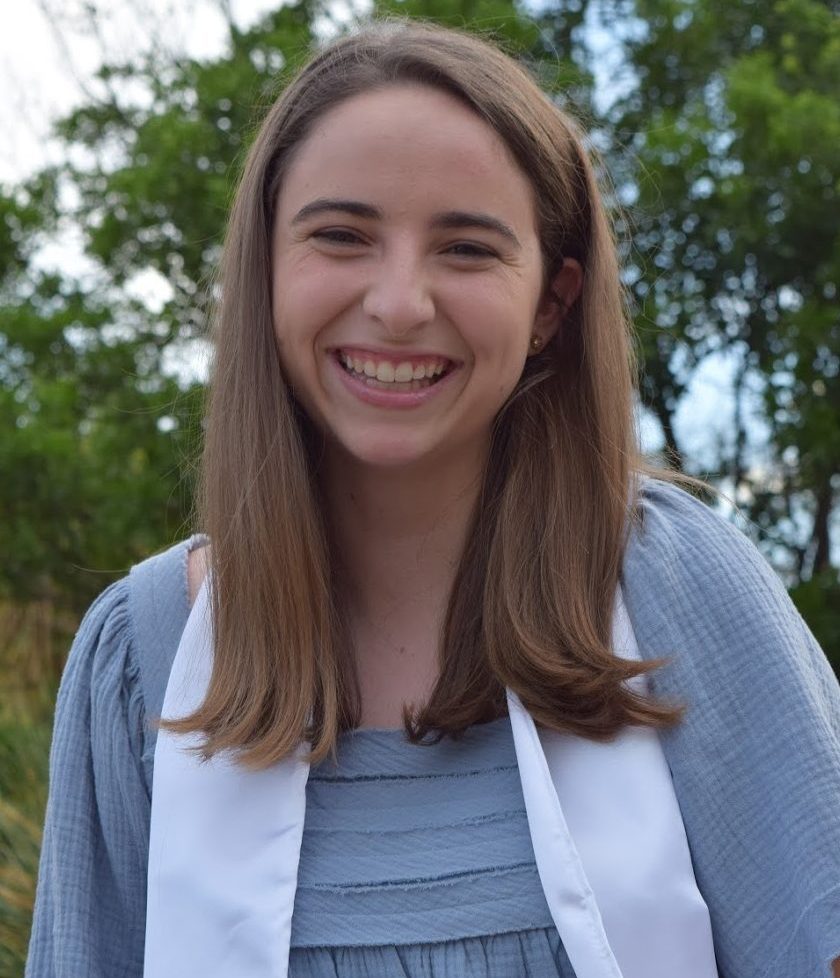Expressing Unconditional Love through Foster Care: One Transitional Foster Mother’s Story
July 13, 2021
Interview by Hannah Masraff
Unaccompanied children are minors under the age of 18 who arrive at the border without a parent or legal guardian. After being encountered by U.S. Border Patrol, these children are processed by the Department of Homeland Security and are then transferred to an Office of Refugee Resettlement (ORR) shelter within 72 hours. ORR works to reunite each child with their sponsor in the U.S. (usually a parent or another biological family member) while they await an immigration court hearing to determine whether they qualify to remain lawfully in the U.S. While identifying sponsors, ORR works with a network of childcare providers to provide safe, age-appropriate placement for these vulnerable children, including organizations that coordinate transitional foster care. Bethany Christian Services is an organization that helps place unaccompanied children in transitional foster care families until they can be reunited with their family or sponsor.
The interview below is with a certified foster care mom for unaccompanied children. After serving in the mission field in Mexico, she felt called to return to the states and eventually partnered with Bethany Christian Services to care for unaccompanied immigrant children. This interview is just a glimpse into how her heart for the gospel and serving the Lord have led her to serving these children.
What drove you to the transitional foster care mom role? How did faith play a role in that decision?
Our family has a real heart for Latin America, and our heart is really pulled toward the orphan and the refugee. We have been involved in Christ–centered orphan care through things like Safe Families for years. When the transitional foster care program came to our state, we were contacted by one of our case managers we had worked with in the past and invited to just consider transitional foster care. Transitional foster care is kind of a perfect marriage of our love for Latin Americans and our love for the refugee and the orphan. It all came together in this really beautiful way. I think that leaving the mission field was really hard for us, so we just really prayed that the Lord would bring the nations to us and he has over the years in a variety of ways. We could see the Lord’s hand in the privilege to open our home to Latin American children. The decision was kind of a no–brainer for us.
How many children have you fostered overall so far?
Through transitional foster care I am going to say probably more than 20. I’m not sure of the exact number and some of those have been respite, but most of those have been just like permanent placements in our house.
How do your children and the transitional foster care children interact at home?
We have five children in our home, and we have really approached serving in this capacity as a full family. So, before we committed to do this, we talked about it and prayed about it as a family and we could not do what we’re doing the way we’re doing it without the full buy-in of our children. It is super important to us that not only they are committed but that they also feel like they are valuable contributors. In our case, because we have so many children, our kids really wind up playing a massive role in the care of our foster kids because they are their playmates, friends, listeners, and share their things. In between placements we check in with all of our kids to be sure that they are ready for another placement. As we walk through placements, it’s not always easy. Sometimes it’s hard, so we are really careful to walk alongside our kids and coach them through whatever it is they’re feeling and experiencing through the placements. It is a full family experience. There is really no separation; it is a full family effort.
What do you believe is most important when letting these children feel welcomed inside your home?
Without a doubt, I think it’s most important that they understand that they are loved and that they are valuable. There’s a really sweet book called The Boy, The Mole, The Fox and The Horse that states, “your value is not determined by the way people have treated you.” If these kids were to really believe their value is based on how they’ve been treated, their value would amount to very little. We want the kids that come into this home to know that they are valuable as a human being and that they are loveable, and we want them to really experience an unconditional love while they are in our home. That is our goal above all else.
What are some challenges you have faced when welcoming children into your home?
While a big challenge for the children would be cultural shock, I would say the biggest challenge would be meeting each child where they are. We need to allow loads of grace and space for them to walk through this experience however they need to. For some children, sitting at a table with a big family who are all laughing and eating and happy can be really difficult. Celebrating a holiday with a family that is not theirs can be triggering. We have to lay down our personal expectations and have the right perspective of why we are welcoming children into our home. It’s not just so we can feel good about something. Welcoming these children takes a lot of perspective and a lot of prayer, so once you can lay your expectations down, then the challenge is loving this child right where they are. If they don’t want to do something you think is going to be really fun, if they need extra time, if they are crying themselves to sleep, you just have to have the space and grace to embrace and love that child and to not place expectations upon them at all.
Where have you seen the Lord’s fruitfulness when welcoming these children into your home?
We’re better as a family when we have these kids in our home, and I think it’s because we are forced to take our eyes off of ourselves and put them on someone else. We are also reminded of the great need for God’s grace, love and provision. Having children in our home aligns us with the gospel. It’s like this push to live the Bible instead of having things be theoretical. It’s also like sandpaper for your soul that smooths off those rough edges of selfishness. It calls us to come to a better place, where our hearts are aligned with Jesus’. For us, I think that’s one of the most beautiful parts. There’s also the joy and wonder of taking a kid to the zoo who has never been and seeing a live elephant, being able to celebrate Christmas and love a child well in that space and the bonds that you develop. But we can definitely see that it does not take us long, when we are not hosting a child, to go back to being wrapped up in what’s happening in the world as opposed to really relying on the Holy Spirit daily, aligning our hearts with Christ and clinging to him for all that we need.
What is something that you have learned about the immigration process for unaccompanied children that you wish everyone knew/understood?
First and foremost, I think that, as believers, we have to understand that the Bible is filled with God’s heart for the refugee. Jesus himself had to flee and go to another country as a refugee. I cannot read scripture and ignore our call to open our homes and be embassies of the King. That for me is where the discussion ends. Jesus is very clear on this issue, but it has been politicized. As we have watched some of the challenges and hardships that these people face, it has brought understanding as to why people make the decisions they make. For example, there are a lot of people who ask “how can a mother leave their child and come to the United States?” People should seek to understand an answer to that question instead of asking that question from a place of judgement. We have had people who will say to us “How can you have these illegal children in your home?” We have to explain that these children are in a federal process and are not here illegally. There are people who may have bought into harmful rhetoric who, after they meet children and put names with faces and start to understand that these children are human beings, feel differently. People often don’t have the full story and need to find out what is actually the truth rather than just listening to a sound bite.
What advice do you have to anyone who may potentially try to start fostering unaccompanied children?
If you’re going to wait until it’s the right time, it’ll never be the right time. It really is an act of faith to believe in God’s call. It doesn’t mean that it’s going to be super easy, but it does mean that he’s with you. It means that he will provide all that you need. People will say “Well, maybe when my kids are a little bit older. Oh maybe when I…” and I think if we keep waiting, it just will never happen. If there is even a stirring, say yes. Then decide in advance that you are going to say yes to the phone call when it comes to welcome the children into your home. I would also say that once you’re in the program you just have to listen to the Holy Spirit. Do you need a break for refreshment or space? That’s fine, and then you step back in as God leads you. It’s a walk of faith and listening to the Father and what he wants. You also have to understand your role in these children’s lives. You’re not adopting, and they are not your children. They are going to leave your home. We just want them to breathe and feel loved and get some restoration before they start the next leg of their journey. I want these children to feel welcome in the United States of America, and I want them to know that there are people who are really glad they’re here.
Any final piece of advice?
If you don’t feel like you can open your home, you can support families who are taking kids in. You can be prayerful. There are still ways to engage and impact this issue in ways that will honor God. I encourage people to engage and pray over the issue; praying for the countries, especially where the majority of these children are coming from, the leadership in charge of these countries and praying for family units. My ultimate prayer is that we would have Christ’s eyes for immigrants and that believers’ hearts would break for the things that break Jesus’ heart.
For ways to get involved please visit: https://bethany.org/help-a-child/foster-care/transitional-foster-care

A Texas native, Hannah graduated from The University of Texas at Austin in 2021 with a degree in Government and Economics. She will earn her J.D. from UT’s School of Law in 2024 and plans to advocate and pursue justice for those who lack a voice.






